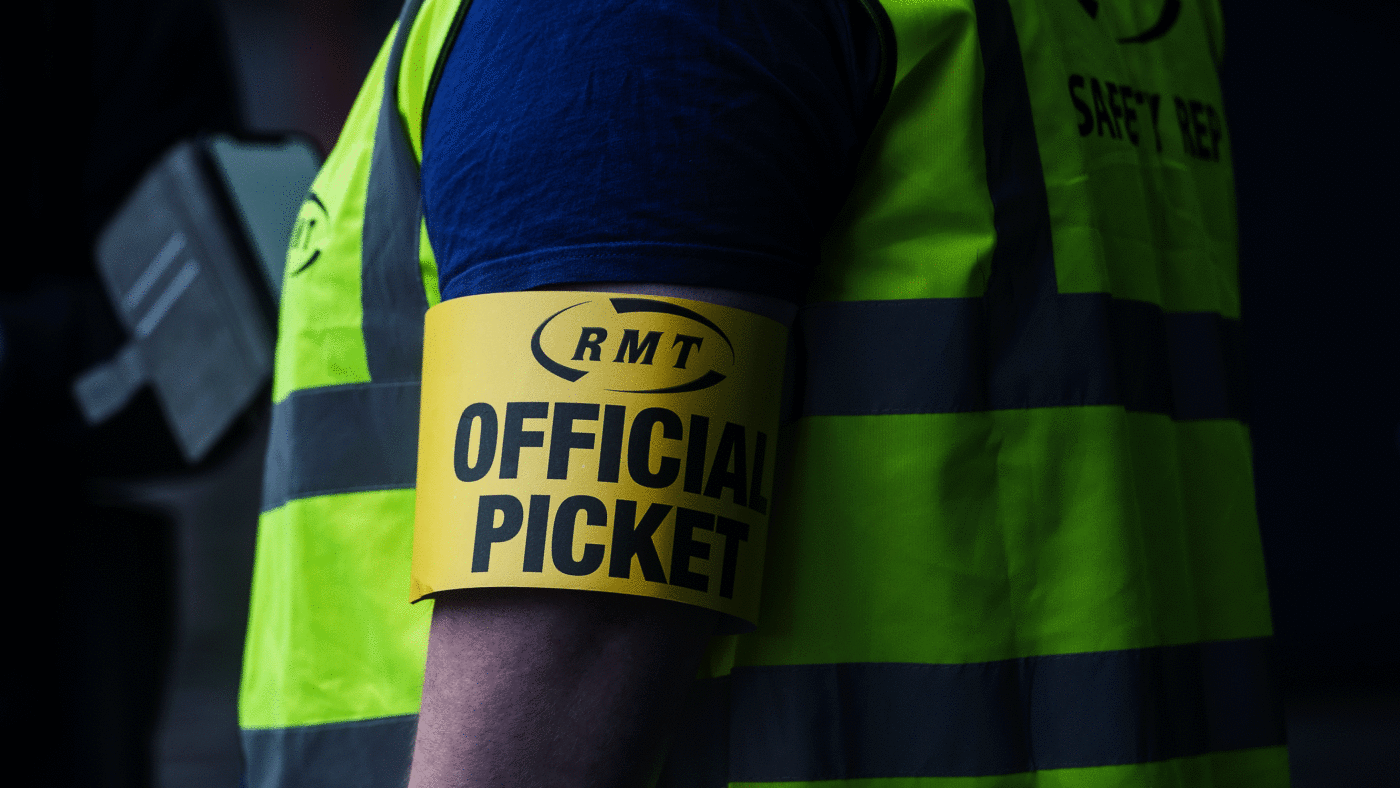The planned national rail strikes were always inevitable following the decision to effectively renationalise the railways and create ‘one guiding mind’ as Grant Shapps puts it – Great British Railways (GBR).
While in recent years strikes have been over company-specific issues – Northern Rail over guards on trains, CrossCountry over Sunday working – the current disputes about pay and possible redundancies are really between the RMT and the Department for Transport. As yet, GBR is a blank sheet of paper. Given that the intention to create this body was rumoured three years ago, little has been done so far and we haven’t even seen a proper bill yet, just a few lines in the Queen’s Speech.
The RMT’s rhetoric asserts that all existing jobs must be maintained, and that its members should receive a hefty pay hike to offset cost of living increases. But these objectives are irreconcilable with the parlous state of railways finances.
Although there has been a recovery in passenger numbers, it has largely been amongst leisure travellers, who pay relatively low fares by booking in advance and travelling at off-peak hours and weekends. The big revenue sources pre-Covid were commuters, trapped in daily routines, and premium business travellers heading for meetings around the country. The shortfall in their numbers looks likely to continue indefinitely as new work habits and online meetings become the norm. As a consequence, revenue is stuck at around 80% of the 2019 figure, while costs have risen substantially.
RMT boss Mick Lynch’s view, that his union’s demands could be financed by cutting top pay and seizing the profits made by Train Operating Companies, is puerile. He presumably thinks that in the end taxpayers will help out – even though 40% of them never use the railways.
Given that taxpayers spent unsustainable amounts of unplanned subsidy keeping trainloads of not-so-fresh air moving during lockdown, something has to give. In the current situation, the Government’s target of £1-2 billion cost savings seems relatively modest. There are some obvious areas for cuts – overstaffed ticket offices, some areas of maintenance, ending the role of guards on some trains, running longer but less frequent trains on some routes, scrapping or postponing planned reopenings of old railway lines – even before we come to HS2.
As usual with the current administration, nothing seems properly planned and organised. Back before the last election, for example, Grant Shapps committed to bringing forward legislation to enforce minimum levels of service during rail strikes, something which countries such as Spain, France Belgium and Italy have had for years.
Such a requirement would have weakened the bargaining power of the RMT (and others, such as the traindrivers’ union ASLEF, which is no doubt waiting in the wings with its own demands). But nothing has been done.
It would be unwise for the Government or its proxies to accede to the RMT’s demands. Yes, railway employees have been hit by two years of pay freeze and the rising cost of living – as have many workers. But higher living costs are being partly compensated by Rishi Sunak’s energy bills discount and council tax cuts, while rail employees did not suffer job losses or absolute pay cuts as many workers did during lockdown.
The danger is that, to avoid a summer of chaos, we will pay the Danegeld. A substantial pay increase, perhaps coupled with a commitment to no compulsory redundancies, would buy a temporary peace. But this would mean that GBR’s management would have to start looking for cuts which would significantly damage the consumer – weekend closures to reduce overtime payments, scrapping investment in new trains, cutting services to little-used stations. In any case the Danes would soon be back for second helpings.
Moreover, the example of a successful strike would not be lost on the civil service unions, the Royal Mail, the universities and parts of the NHS, all of which are currently contemplating industrial action.
A radical government would consider taking on the giant unions once and for all. Recent figures show that the unions are unrepresentative of the wider workforce. Last year union membership fell to just 23.1% of employees, the lowest figure since numbers were measured in this way. Union members are a relatively privileged section of the workforce; they are more highly educated, they are more experienced and on average significantly older than employees as a whole. They certainly earn more: railway employees, for instance, earn £44,000 on average. Meanwhile those sectors with concentrations of poorly-paid workers – retailing, textiles, hair and beauty, food services and accommodation – have very low levels of union membership and very little bargaining power.
With a determined effort, new legislation could limit the power of unions to cause disruptive strikes where the target is effectively the Government, and where the taxpayer is expected to stump up to fund expensive settlements. It would wrongfoot the Labour Party, which has predictably been very quiet about the RMT’s planned strikes, and could help revive the Government’s fortunes. But I’m not holding my breath.
Click here to subscribe to our daily briefing – the best pieces from CapX and across the web.
CapX depends on the generosity of its readers. If you value what we do, please consider making a donation.


